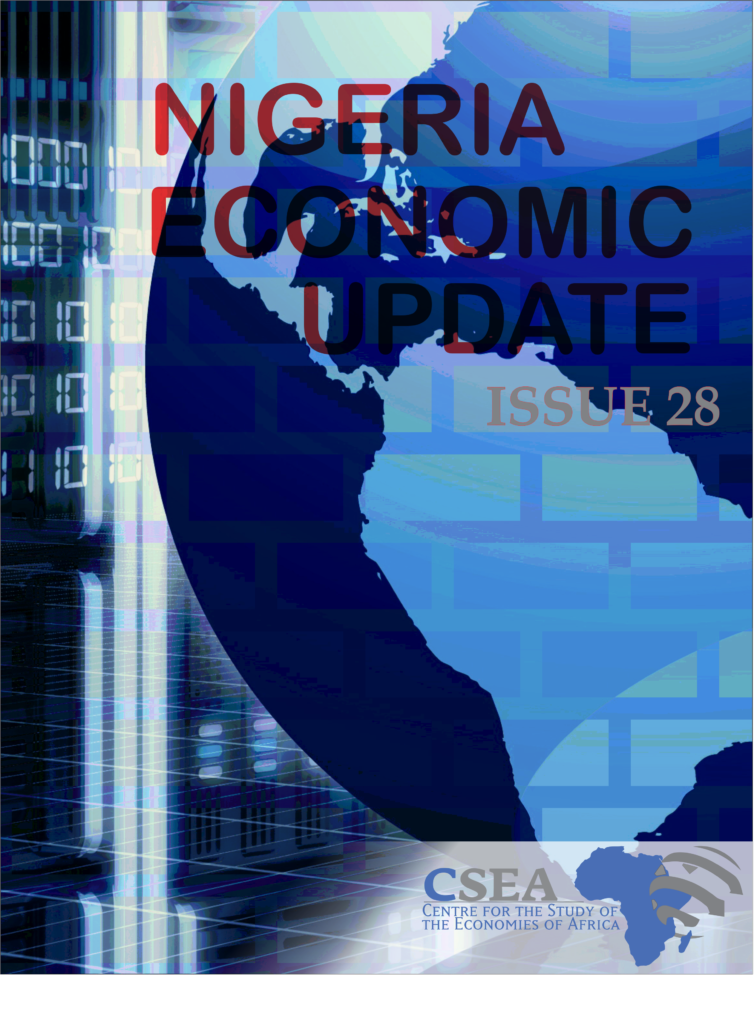Information from the Apex bank shows a likelihood of not attaining the financial inclusion target of 2020 as stated in the Nigeria Financial Inclusion Strategy (NFIS) of 2012. Precisely, the CBN’s 2016 financial inclusion report states that only 58.4 percent of Nigerian adults were financially included as against the overall financial inclusion rate targeted at 80 percent. Similarly, only about 48.6 percent use formal financial services compared to the targeted 70 percent1. Related to the targets are 22 key performance indicators that Nigeria still lags behind in. Leveraging on technology to boost financial inclusion would be a significant step forward
Macroeconomic Report & Economic Updates

August 2, 2018
Nigeria Economic Update (Issue 28)
Information from the Apex bank shows a likelihood of not attaining the financial inclusion target of 2020 as stated in the Nigeria Financial Inclusion Strategy (NFIS) of 2012. Precisely, the CBN’s 2016 financial inclusion report states that only 58.4 percent of Nigerian adults were financially included as against the overall financial inclusion rate targeted at […]
Read →
Related
Nigeria Economic Update (Issue 45)
Recently
released report by Nigeria Extractive Industries Transparency
Initiative (NEITI)shows a significant decline in revenue
allocation across the three tiers of government for 2016H1 (January to June). Specifically, total disbursements dropped
(year-on-year) by 30.45 percent to N2.01 trillion in 2016H1. The
drop in revenue allocations is accountable to the decline in both oil and
non-oil revenue. While lower oil revenue was triggered by the drastic fall in
oil price and production in 2016H1, lower non-oil revenue was driven by the decline
in tax revenue occasioned by contraction in economic activities in the review
half-year.
Political Decentralisation And Natural Resource Governance In Nigeria
The paper discusses Natural Resource
Control and how it is affected by governance in Nigeria with focus on two
oil-producing states. It also examines sub-national accountability in the use
of natural resource revenues.
Nigeria Economic Update (Issue 5)
Recently released media highlights show that Nigeria has dropped in terms of macroeconomic indicator rankings in 2018. With a headline index of 2.77, Nigeria is ranked 158th globally out of 181 countries five places lower than the previous year rankings. Indicators suggest that Nigeria is presently behind 28 other African countries, and just ahead of only 4 West African countries (Mauritania, Togo, Niger and Guinea Bissau).
